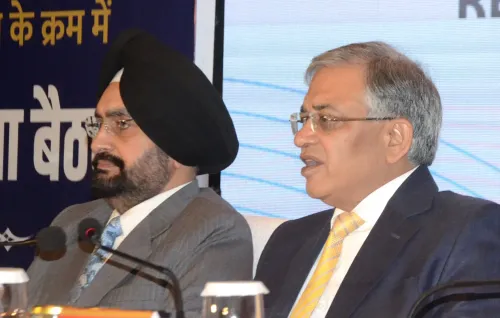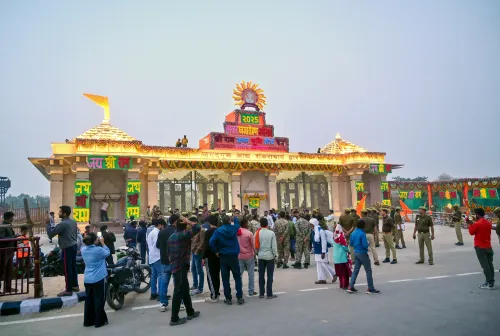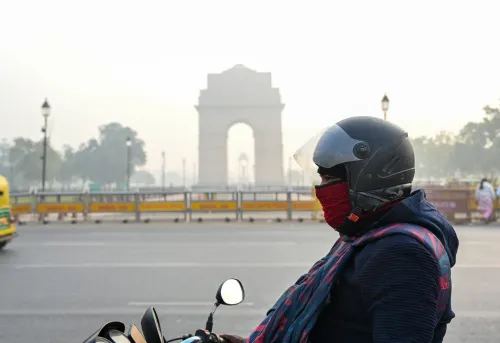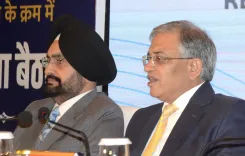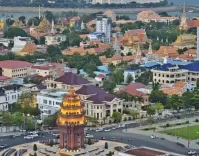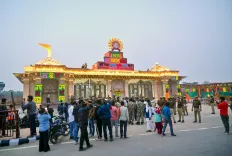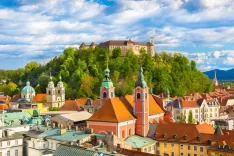Is Independence without Inner Liberation Truly Incomplete? Acharya Prashant on the Gita’s Message
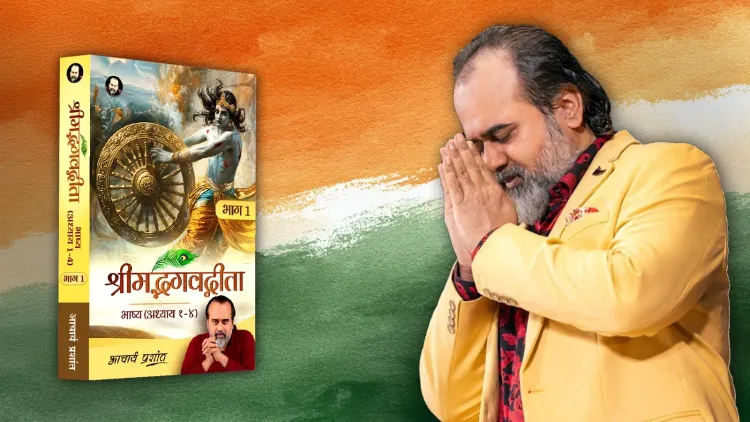
Synopsis
Key Takeaways
- True independence requires both political and inner liberation.
- Unity among citizens is essential to prevent division.
- Historical lessons highlight the importance of self-awareness.
- Introspection is key to understanding our true motivations.
- Spiritual clarity strengthens the fabric of society.
New Delhi, Aug 15 (NationPress) As the nation commemorates its 79th Independence Day on Friday and Janmashtami on Saturday, philosopher and author Acharya Prashant aimed to enlighten the citizens, emphasizing that India’s political emancipation of 1947 is incomplete without the Gita’s emphasis on inner liberation, advocating for a fusion of the Gita’s freedom with the Constitution’s liberties.
In a message delivered on the eve of Independence Day, the philosopher underscored the importance of unity, stating, “We are all Indians, yet when we fragment ourselves by caste, religion, ideology, region, or language, we transform our comrades into outsiders — and outsiders into adversaries. This disunity diminishes our strength from within.”
He further elaborated, “Historical patterns demonstrate that when a populace is preoccupied with self-division, they invite external domination. A nation that is internally fractured becomes an easy target for foreign influence.”
He stressed that genuine independence necessitates both spiritual emancipation and freedom of thought.
He pointed out that this year’s unique convergence of Independence Day and Janmashtami holds profound symbolism, indicating that the nation’s prosperity and authentic spirituality are interlinked.
“Independence comes first, then follows Janmashtami. This signifies that outer freedom is more readily accessible, while inner liberation is more challenging yet profoundly more vital,” he remarked.
He asserted that this unusual coincidence is not mere happenstance. “As there is no divide between the 15th and 16th, there is no authentic separation between the nation's prosperity and true spirituality. It seems as though time itself is communicating to us, reminding us that political freedom and inner freedom must coexist,” he expressed.
“Independence Day symbolizes liberation from foreign rule; Janmashtami calls us to liberate ourselves from the compulsions of our minds. Both forms of freedom are crucial, and one without the other is merely partial,” he articulated.
“Independence Day recalls one external oppressor — the British, while Janmashtami confronts us with six internal oppressors: lust, anger, greed, delusion, pride, and envy — all residing within us,” he continued.
He stated that while political independence terminated external subjugation, it did not emancipate us from the “enslavement of greed, fear, and ignorance.” Without conquering these internal foes, even our rights and freedoms can be exploited to deepen our bondage.
“This is evident worldwide today: In places where inner liberation is absent yet outer freedoms are abundant, individuals frequently act recklessly in the name of free will,” he noted.
Quoting the Gita, he reiterated that true freedom is “action rooted in clarity, not compulsion.” He warned, “In the absence of inner liberation, outer freedom can become perilous. An individual enslaved by fear, greed, or delusion will misuse their rights to tighten their own shackles.”
“On the battlefield of Kurukshetra, Krishna did not instruct Arjuna to flee from battle, nor to engage out of anger. He urged for action unbound by attachments — that is liberation. Without this, even a politically liberated nation cannot fulfill its potential,” Acharya Prashant stated.
“Remember, prior to the 18 days of conflict came 18 chapters of the Gita: scripture precedes weaponry, knowledge precedes action. Arjuna was not paralyzed by the external enemy but by his internal fears and attachments. Krishna first provided clarity, then prompted him to act. Knowledge must precede action; otherwise, even the most valiant warrior may falter,” he added.
He emphasized that liberty of thought is inseparable from spiritual emancipation. “You cannot be inwardly liberated yet outwardly shackled by borrowed ideas. Nor can you think freely if you are constrained by fear, prejudice, or unexamined beliefs. Liberation and liberty must coexist,” he remarked.
He cautioned that history illustrates the downfall of nations that neglect the Gita’s teachings. “We possessed the numbers, resources, and even the highest philosophy globally, yet we lost our freedom. Such a situation arises only when the inner message is disregarded,” he stated.
“How else could a vast nation with abundant resources be subdued by small islands thousands of miles away, especially when they lacked today’s technological advantages? Such a collapse is feasible only when people forget the inner strength that their highest wisdom offers,” he added.
Drawing a comparison between the chains of colonialism and today’s more subtle shackles, he remarked, “In 1947, we liberated ourselves from political chains. Today, we must break free from internal shackles — consumerism, sectarianism, and blind imitation. Without this, freedom is merely a facade.”
He concluded, “A populace that dismisses the enemies residing in their hearts, focusing solely on external adversaries, runs the risk of replicating the circumstances that once led to their subjugation. If we neglect these internal foes, history will recreate the conditions for foreign domination. Subjugation is never coincidental; it initiates when people forsake self-awareness and yield to their inner adversaries.”
He warned that national independence devoid of spiritual clarity risks internal collapse. “Political freedom without self-regulation of the mind results in conflict, corruption, and rights misuse. The Gita holds us accountable not only for our actions but also for our thoughts and motivations,” he stated.
Advocating for what he calls “inner swaraj,” he urged citizens to dissolve false identities, embrace truth, and act from understanding rather than compulsion. “Look into the mirror,” he advised. “Identify the beliefs, prejudices, and fears that govern you, question their origins, and examine how much truth resides in them.”
He concluded, “Truth alone is strength. One who aligns with truth may face physical harm but can never be vanquished.”
“This is the genuine celebration of Independence Day and Janmashtami: not merely raising flags or performing rituals, but introspection to discover what governs us and liberating ourselves through truth.”
“Let patriotism transcend mere emotion; let it elevate our consciousness. Let us merge the Gita’s emancipation with the Constitution’s liberty. Only when political swaraj is anchored in spiritual liberation will India’s freedom be truly safeguarded,” he asserted.
He concluded that the authentic celebration of both occasions is the union of external and internal freedom. “Be liberated citizens in a liberated nation, but also liberated beings in your minds. That is true independence.”

